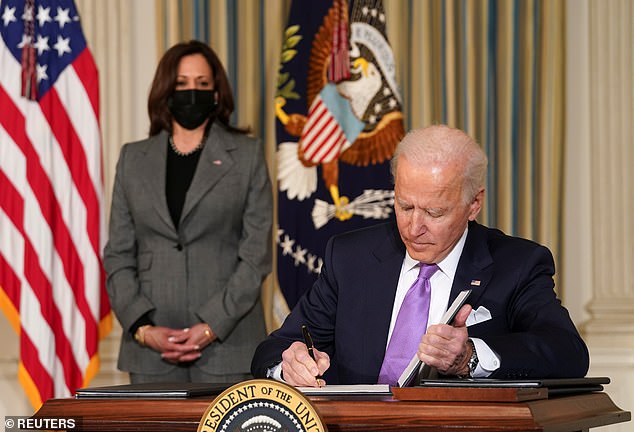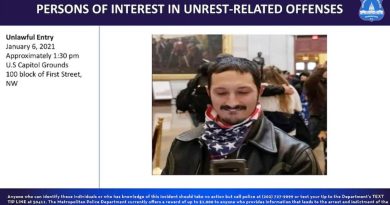Joe Biden signs executive orders that deal with racial equity
President Joe Biden signed a series of executive orders Tuesday afternoon that deal with racial ‘equity’ – and took aim at one of Donald Trump’s signature measures, the 1776 Project, as ‘lies.’
He credited the death of George Floyd as an inflection point turning America against ‘systemic racism and white supremacy.’
‘Those eight minutes and 46 seconds that took George Floyd’s life, opened the eyes of millions of Americans and millions of people all over the world,’ Biden said. ‘It was the knee on the neck of justice and it wouldn’t be forgotten.
‘It stirred the consciousness of tens of millions of Americans and in my view it marked a turning point in this country’s attitude toward racial justice,’ Biden continued.
Biden signed four orders including one that instructs the Department of Justice not to renew contracts with private prisons. He also signed a memorandum directing the Department of Housing and Urban Development to mitigate racial bias in housing.
He signed an order reaffirming the federal government’s commitment to tribal sovereignty.
And he signed a memorandum condemning xenophobia against Asian Americans, which has been on the rise since the beginning of the COVID-19 pandemic – taking aim at former President Donald Trump’s use of the term ‘China virus.’
‘Look, in the weeks ahead, I’ll be reaffirming the federal government’s commitment to diversity, equity and inclusion and accessibility, building on the work we started in the Obama-Biden administration,’ he said.
‘That’s why I’m rescinding the previous administration’s harmful ban on diversity and sensitivity training and abolishing the offensive and counter-factual 1776 Commission,’ Biden said. ‘Unity and healing must begin with understanding and truth, not ignorance and lies.’
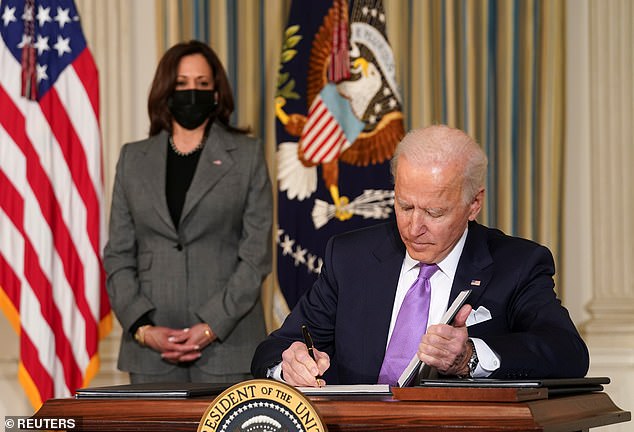
President Joe Biden (right) signed four executive orders Tuesday that deal with racial equity with Vice President Kamala Harris (left) at his side
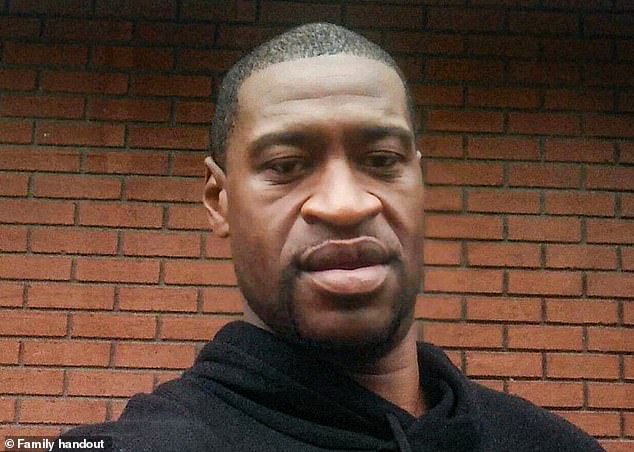
Biden credited the death of George Floyd (pictured) with jumpstarting the country into action to defeat white supremacy
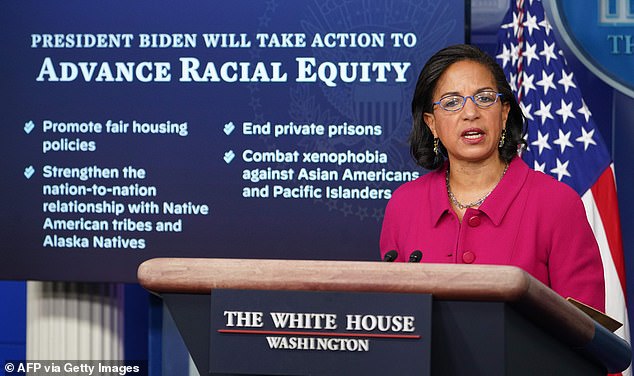
Domestic Policy Advisor Susan Rice outlined some of the executive orders and memos Biden would sign later Tuesday during the press briefing
Just hours into his presidency, Biden dissolved Trump’s 1776 Commission, which was formed in September partially in response to The New York Times’ 1619 Project.
It became highly controversial for trying to reframe American history as starting with the arrival of the first slaves in 1619 and being defined by first slavery and then its aftermath ever since.
It drew heated attacks over its accuracy – particularly a claim that the inspiration for the Declaration of Independence from Britain was in part because the colonies wanted to ‘protect the institution of slavery.’
As part of his pre-election culture war, Trump attacked the project and called for American children to be given a ‘patriotic education’ not one that demonizes the white founders.
That same month, he banned racial sensitivity training for federal workers and government contractors – including critical race theory, another lightning rod for controversy.
Trump had also embraced a ‘law and order’ candidacy and etched out policy positions such as statues and military bases named after Confederate generals should remain.
Earlier CNN reported that Biden would form a policing commission that would try to prevent deaths like that of Floyd. He did not make that move Tuesday.
The president did link racial inequality with the COVID-19 pandemic, noting ‘the devastation in communities of color has been nothing short of stunning.’
‘Black and Latino Americans are dying of COVID-19 at rates nearly three times that of white Americans,’ Biden said. ‘It’s not white Americans fault, it’s just a fact – and the Americans now know it, especially younger Americans.’
Biden said that while economic studies prove John F. Kennedy’s statement that ‘a rising tide lifts all boats,’ he pointed out that it’s fairly obvious.
‘Just imagine if instead of consigning millions of American children to under-resourced schools, we gave each and every three, four-year-old child a chance to learn, go to school, not daycare, school, and grow and thrive in school,’ Biden said.
‘Does anyone in this whole nation not think we’re all better off if that were to happen?’ he mused.
Earlier, Susan Rice, the director of the United States Domestic Policy Council, had previewed the four orders.
Rice, too, talked about economic opportunity at the briefing.
‘Today the average black family has just one-tenth the wealth as the average white family,’ Rice said in her opening remarks at the briefing.
‘These aren’t feel good policies, the evidence is clear, investing in equity is good for economic growth and it creates jobs for all Americans,’ Rice continued.
Rice cited a figure that $16 trillion has been lost over a 20-year period because of discrimination.
By closing racial gaps in income and opportunity, $5 trillion could be added to the U.S. economy over the next five years, she said.
Trump had unveiled the commission in September before a culture-war speech in the wake of Black Lives Maters protests and efforts to remove the statues of figures from American history associated with slavery, and Christopher Columbus.
The president tore into ‘radicals’ for causing ‘mayhem’ on the nation’s streets, and sought repeatedly to tie them to his political adversaries.
He didn’t confine his comments to street protesters – bringing in swaths of society that included the media and his political opponents.
‘These radicals have been aided and abetted by liberal politicians, establishment media and even large corporations,’ Trump said.
The order revoked by Biden was written by then head of the Office of Management and Budget, Russ Vought.
The speech included an attack on ‘cancel culture’ although Trump had demanded his Twitter followers ‘report any sightings’ of critical race theory ‘so we can quickly extinguish.

